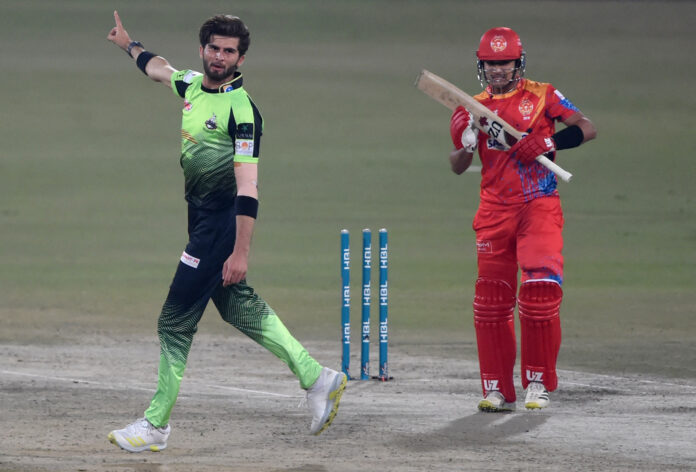This is the story of two interviews. The first was with Ali Naqvi, the owner of the Islamabad United franchise of the HBL PSL. The second was with Atif Rana, the CEO of Lahore Qalandars.
Both men represent two extremes of how the business of sport is managed in the HBL Pakistan Super League. On the one side is Mr Naqvi. The high-flying international businessman who spent 20 years of his career at the Swiss investment bank Credit Suisse has spent decades as a key advisor to governments, corporates and global investors in the dramatic transformation of the economies. No stranger to making cool decisions under pressure, his style of business has given shape to a team that is cool and calculated. On the other side are the Rana brothers flanked by coach Aqib Javed. At the Qalandars High Performance Centre near Jalo where Profit interviewed the Qalandars team, there was an environment of what can only be described as chaotic good.
It might have gone unnoticed by the casual watcher of the HBL PSL, but the lead-up to this year’s tournament had as part of it a brief social media war between the Islamabad United and Lahore Qalandars franchises. Islamabad United had, as part of their social media campaign, run a twitter campaign under the hashtag “#DimaghSe” — which was supposed to represent the calculated, logical, near mathematical approach to cricket that has been the hallmark of Islamabad United over the past few years. Lahore had responded with the hashtag “DilSe” — representing their more heart-on-sleeve maverick ethos and team spirit.
These are all of course objective observations. How these approaches to management and business translate onto the field aren’t quite a linear equation. What we do know is that Islamabad United has gained a reputation for being the team with a plan which most utilises data in the style of American sports and where analysts are King over captain and coach. Lahore, on the other hand, is the team with “heart” — where decisions don’t always make sense but sometimes end up providing inspired moments of brilliance. The team, in a way, which is closest to being a family. That at least is what they have built their brand around.
More than anything else, these two differing styles of management and as a result gameplay have shown the many different methodologies and philosophies to success in T20 cricket and in sports franchise management.
“I feel like Islamabad United is an outlier in the way that it is run. You could I suppose say that Multan Sultans have tried to adopt a similar kind of approach in recent years but perhaps not with the same interest. Lahore, Karachi, and Peshawar have a different approach — they are trying to build their brand around personalities and stories,” explains Osman Samiuddin. “I think the really good thing about the PSL is that there have been seven editions, and there are six teams all of which have at some point or the other won the tournament. That means this is a fairly balanced tournament and that means there are all of these different ways of succeeding.”
“At the end of the day the reality is that if you have the talent and the vibes you will win. If you have Shaheen Afridi in your team you will always be in with a shot of winning for example. Meanwhile if you’re part of Islamabad, then guys like Hasan and Rehan have built their entire brand around an approach that has to do with very calculated risk taking. It might come off only 7 out of 10 times but that is usually enough for them to win most matches.”
As the tournament continues to grow and more teams eventually become a part of it, there will be very fascinating turns in terms of how all of the franchises manage their business interests. The philosophies behind these business strategies will in some way, shape, or form eventually translate into cricket philosophy and show up on the field as well. One can only hope for more teams leading to a more diverse pool of team owners and sports managers.

























Very amazing post, I liked it
5 marla house in Murree, surrounded by lush greenery and breathtaking mountain views and located at the heart of Islamabad Murree Expressway, Musyari.
3 Marla Plot for sale On Easy Installments Book Now! MODERN HOUSING SOCIETY PEARL RESIDENCIA Toba Tek Singh – Miracle Garden – 65000 Sq.ft WIDE MAIN GATE.
This is really beneficial kind of blog post. I love it a lot.
Sports and business share a compelling synergy, both driven by competition, strategy, and the pursuit of excellence. Beyond the playing field, the business of sports encompasses a vast industry, from sponsorships and merchandising to media rights and franchise operations.
This type of blog content is quite helpful. I’m extremely fond of it.
I have to say that you make my day. After seeing your blog, I am feeling happy.
This blog is excellent; all the material is clear and accurate.